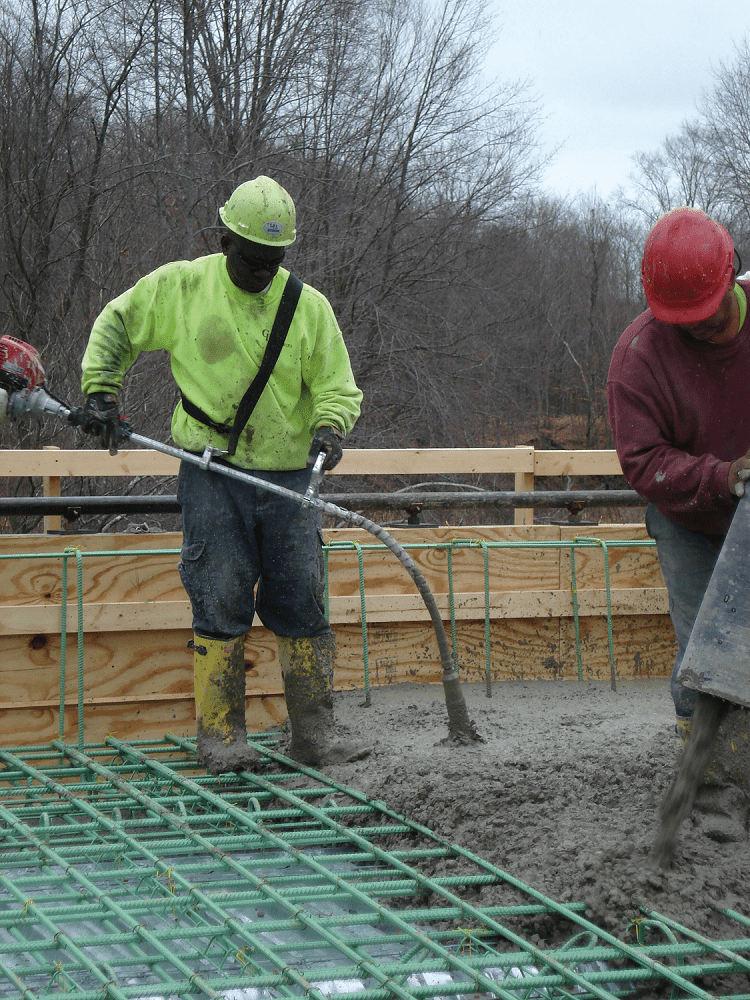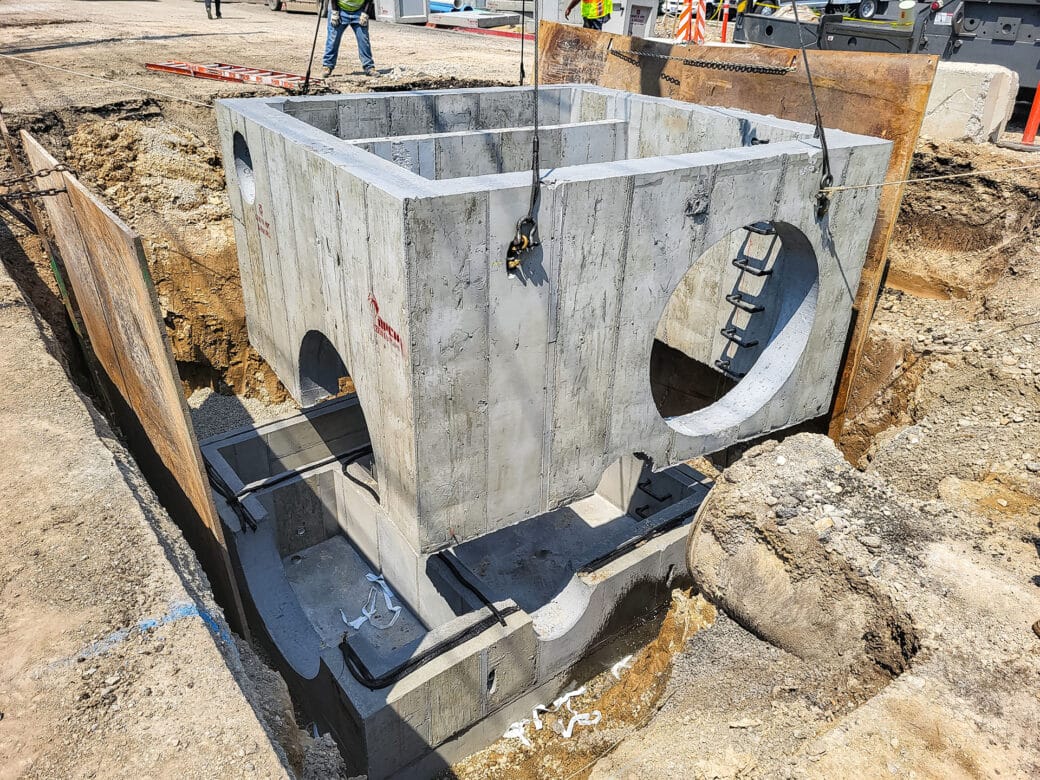The Necessary Role of Concrete Structure in Structural Integrity and Durability
When it pertains to constructing a residential property, the structure is a lot more essential than you may think. Concrete structures supply unmatched strength and longevity, ensuring your framework can hold up against various environmental difficulties. Without a strong base, you take the chance of potential problems like changing or breaking, which can jeopardize security and worth. Recognizing the subtleties of concrete foundations could be the key to protecting your investment for years to come. So, what should you think about next?
Understanding the Value of Concrete Foundations
Concrete structures are vital to the total stability of any kind of structure, as they offer the crucial support required to withstand different tons and environmental conditions. When you think of constructing a home or an industrial space, the foundation is the initial thing you need to consider. It functions as an obstacle versus wetness, protecting your residential property from water damages. A well-placed concrete structure also stops settling and moving, which can bring about cracks in wall surfaces and floors. You'll wish to ensure that the foundation is properly made and enhanced, as this impacts the durability of your structure. Additionally, a strong structure can boost energy efficiency by decreasing air leaks. Keep in mind, ignoring the significance of a concrete structure can result in costly fixings down the line. Investing in a quality foundation upfront is necessary for the stability and resilience of your framework.
Benefits of Concrete Foundations for Structural Integrity
While many factors add to a building's architectural stability, concrete structures supply unmatched resilience and toughness. You'll value that concrete can hold up against extreme weather, withstanding both wetness and temperature level fluctuations. This resilience indicates your framework is less likely to experience splitting or shifting over time, which can compromise its safety.Additionally, concrete's intrinsic weight offers a solid base, protecting against movement during natural events like quakes or floods. When you pick a concrete foundation, you're also choosing low upkeep; unlike wood, it will not rot or draw in bugs, saving you time and money in repairs.Moreover, concrete's fire resistance uses added security, guaranteeing your structure can endure high temperatures without significant damages. On the whole, buying a concrete structure indicates you're prioritizing the long-term stability and integrity of your building, making it a wise choice for any kind of construction job.
Common Kinds of Concrete Foundations
When it comes to constructing foundations, understanding the typical kinds of concrete structures can assist you make educated choices for your task. One of the most widespread types include slab-on-grade, crawl space, and complete cellar foundations.A slab-on-grade foundation is a simple, affordable choice, where a thick concrete slab is put straight on the ground. This kind functions well in cozy climates, as it lessens warm loss.Crawl room structures elevate the home slightly over ground, permitting air flow and accessibility to pipes and electric systems. This design can help stop wetness issues.Full basement structures provide additional living or storage space while giving superb structural support. They require even more excavation and are normally utilized in colder climates to stop frost heave.
Variables to Take Into Consideration When Designing a Concrete Structure

Ideal Practices for Setting Up Concrete Foundations
When you're mounting a concrete foundation, appropriate site prep work is important to assure stability (WCGE commercial concrete). You'll additionally require to understand support strategies to improve toughness and durability. Don't ignore the healing process, as it plays a fundamental function in attaining a strong foundation.
Site Prep Work Value
Although it may seem simple, correct website prep work is crucial for guaranteeing a strong and long lasting concrete foundation. Begin by removing the location of any type of particles, plants, or organic material that can jeopardize the structure's integrity. Next, assess the dirt kind and compaction; you might need to excavate or add products to produce a steady base. Level the ground to assure even weight distribution and stay clear of resolving issues later. Mounting proper drain systems is likewise vital to stop water build-up, which can compromise the foundation gradually. Ultimately, define the structure's measurements accurately to assist the putting process. By adhering to these actions, you'll set the phase for an effective concrete structure that stands the examination of time.
Reinforcement Techniques Clarified
Once the site is appropriately prepared, the next step in ensuring a durable concrete foundation includes applying efficient reinforcement methods. You should begin by using steel rebar, which offers tensile stamina and aids protect against fracturing. Lay the rebar in a grid pattern, seeing to it it rises making use of spacers to preserve appropriate protection. In addition, consider utilizing wire mesh for added assistance, especially in locations subject to hefty tons. Don't forget to link the rebar crossways firmly with wire. For larger structures, fiber reinforcement can enhance toughness, lowering the risk of shrinking splits. Always adhere to regional building codes and standards to make sure compliance. By using these reinforcement techniques, you'll considerably boost your structure's stamina and durability, laying a solid foundation for your framework.
Curing Refine Essentials
To ensure your concrete structure cures correctly, it is essential to keep adequate dampness and temperature problems instantly after pouring. Start by covering the surface area with a damp cloth or plastic bed linen to keep wetness. This maintains the concrete hydrated, avoiding splits and making sure stamina. You must additionally monitor the temperature level; ideal treating conditions are in between 50 ° F and 90 ° F. If it's too hot, mist the surface area regularly to protect against rapid evaporation. For chilly climate, think about utilizing insulating coverings to preserve warmth. Go for a healing duration of a minimum of 7 days, as this is crucial for ideal stamina growth. By following these ideal methods, you'll boost your structure's longevity and durability, making sure structural integrity for many years to find.
Maintenance of Concrete Structures for Long Life
To maintain your concrete structure strong and long-term, regular inspections are important. You need to also guarantee efficient drainage services remain in area to stop water damage. If you identify any type of cracks, resolving them without delay will save you from larger issues down the line.

Regular Inspections and Evaluations
While normal inspections and analyses may feel like a job, they're essential for maintaining the stability of your concrete structure. By regularly looking for cracks, shifts, or indicators of wear, you brickform stamps can capture possible problems prior to they escalate into costly repair work. Search for any type of water merging around the structure find here or unusual settling, as these can signal underlying issues. It's also sensible to keep track of any adjustments in your house's framework, like doors that stick or home windows that do not open efficiently. Maintaining a record of your assessments assists track adjustments over time, permitting positive upkeep. Inevitably, these assessments ensure your foundation stays stable, sustaining the durability and security of your entire framework. Don't forget this critical element of homeownership!
Effective Drainage Solutions
Routine assessments can expose issues like drainage problems that could endanger your concrete foundation's security. To prevent water buildup, guarantee your seamless gutters and downspouts straight water far from the foundation. Installing French drains pipes can successfully redirect surface area and groundwater, lowering pressure on your foundation walls. Additionally, rating the soil around your home helps assure that water streams away, instead than merging near your foundation.Consider utilizing sump pumps in areas susceptible to flooding, as they proactively remove excess water. Routinely look for obstructions in water drainage systems and clear them immediately. You'll protect your structure's stability and long life by taking these proactive steps. Remember, efficient drain remedies are crucial for keeping a strong, sturdy concrete structure.
Prompt Crack Fixes
When you notice splits in your concrete foundation, addressing them immediately is important for keeping its long life. Small splits can rapidly progress into bigger issues, endangering the architectural stability of your home. On a regular basis examine your foundation for indications of damages, such as straight or upright fractures. If you find any, do not wait-- repair them promptly. You can make use of epoxy shots or concrete patching compounds, which are efficient for securing fractures. Always adhere to the maker's instructions and think about seeking advice from a specialist for considerable damage. Remember, prompt fixings not just boost your foundation's resilience yet also save you cash over time by preventing a lot more substantial repair work down the line. Stay brickform stamps for sale aggressive, and your foundation will remain strong and safe and secure.
Dealing With Common Concerns With Concrete Structures
Concrete foundations can deal with different concerns over time, making it critical to determine and resolve them immediately. Among one of the most usual troubles is splitting, which can occur because of temperature changes or settling soil. If you observe fractures, it's important to assess their dimension and depth; little splits can commonly be sealed, while bigger ones might require specialist evaluation.Water breach is another major concern. Excess wetness can result in mold development and structural degeneration. Assurance proper water drainage around your structure to reduce this danger. Furthermore, seek indicators of moving or bowing wall surfaces, as this can show underlying problems with your foundation's stability.Regular assessments are essential to catch these issues early. If you spot any kind of worrying indicators, do not hesitate to consult a foundation professional. By staying positive, you can maintain the honesty and durability of your concrete foundation, ensuring your home remains risk-free and safe and secure.
Often Asked Inquiries
How Does Soil Type Influence Concrete Foundation Efficiency?
Dirt kind substantially affects concrete foundation efficiency. If you have actually obtained expansive clay, as an example, it can cause moving and cracking. Sandy dirt may cause clearing up. Comprehending your soil assists ensure a steady foundation.
Can Concrete Foundations Be Fixed if Damaged?
Yes, you can fix broken concrete structures. Relying on the level of the damages, strategies like epoxy shot or piece jacking can recover security. It's best to get in touch with a specialist for reliable options.
What Is the Normal Lifespan of a Concrete Foundation?
A concrete foundation generally lasts 30 to 100 years, depending on elements like soil conditions, climate, and maintenance. You'll intend to watch on it to assure it continues to be in excellent form throughout its life expectancy.
Exist Choice Materials to Concrete for Foundations?
Yes, there are alternatives to concrete for foundations, like steel, hardwood, and even recycled products. Each option has special advantages and drawbacks, so you need to consider your project's specific requirements when selecting the right material.
Exactly How Does Environment Effect Concrete Structure Durability?
Environment greatly affects concrete foundation toughness (West Coast General Engineering concrete foundation Rancho Cucamonga). Severe temperature levels, moisture, and freeze-thaw cycles can damage the material, causing fractures and structural concerns. You should take into consideration regional climate conditions when intending your foundation to guarantee lasting performance